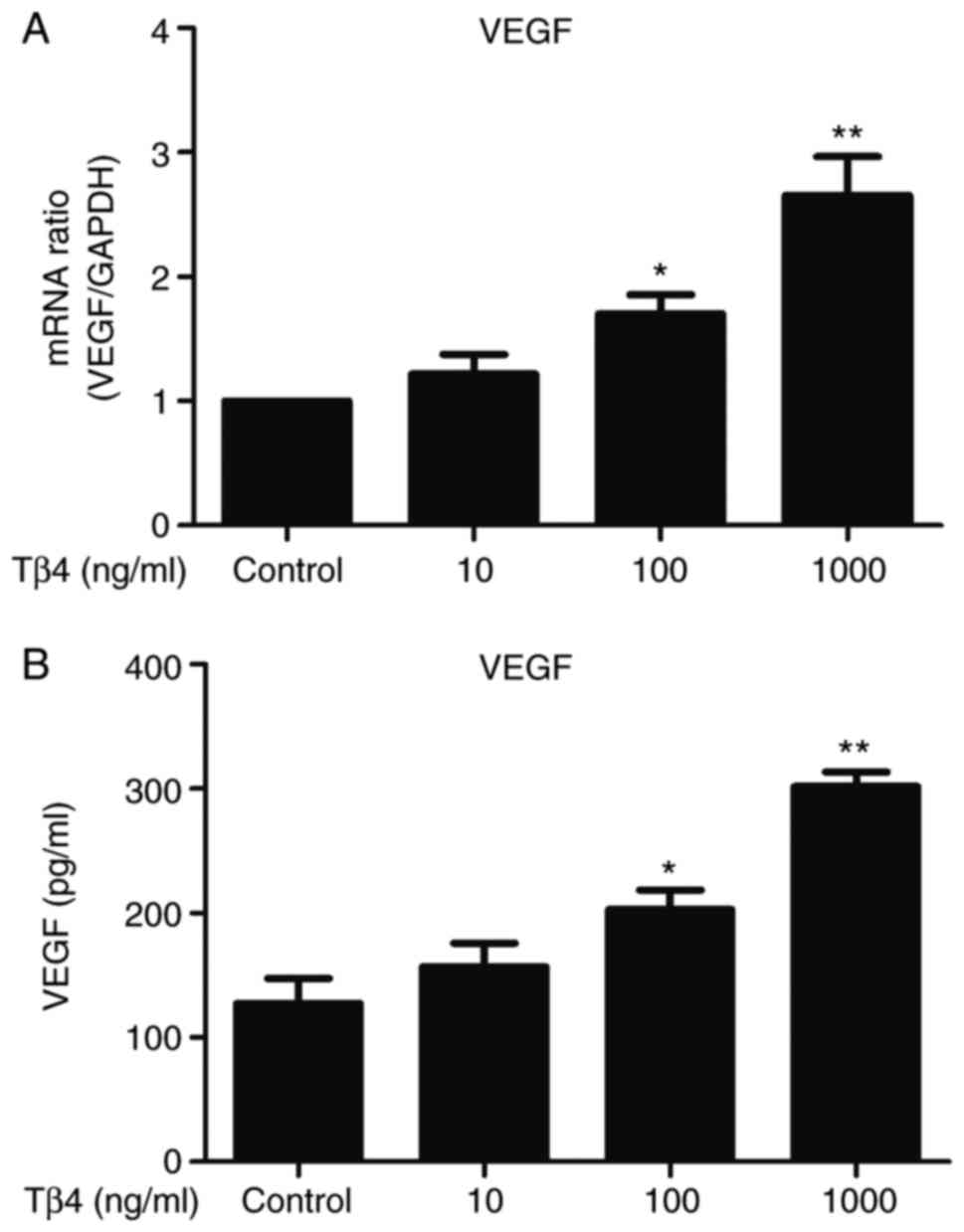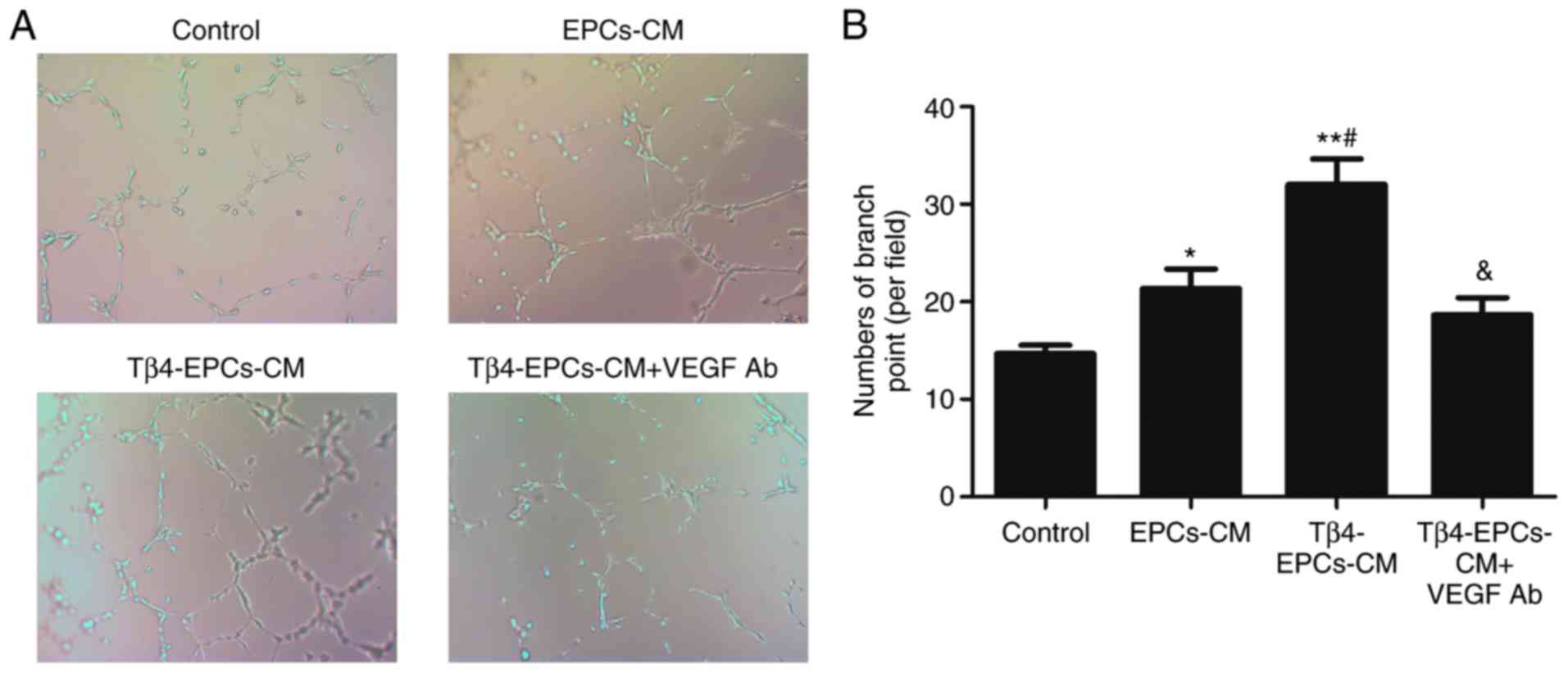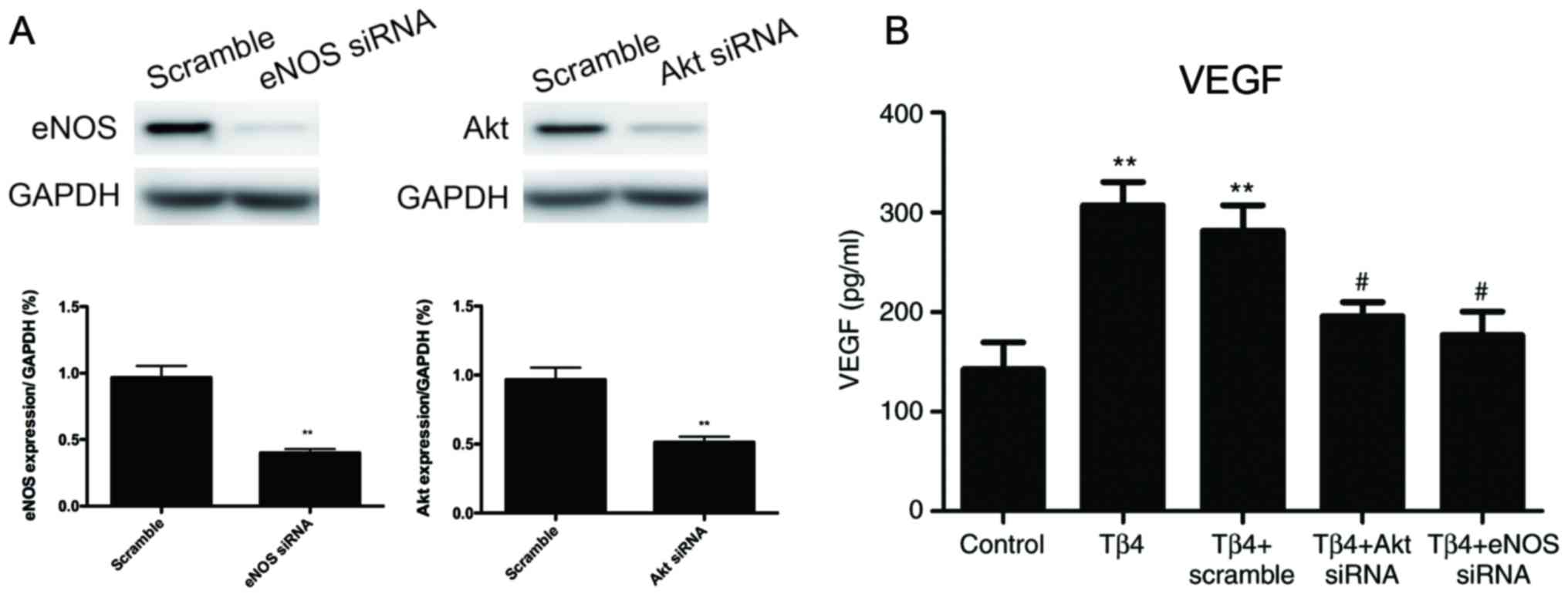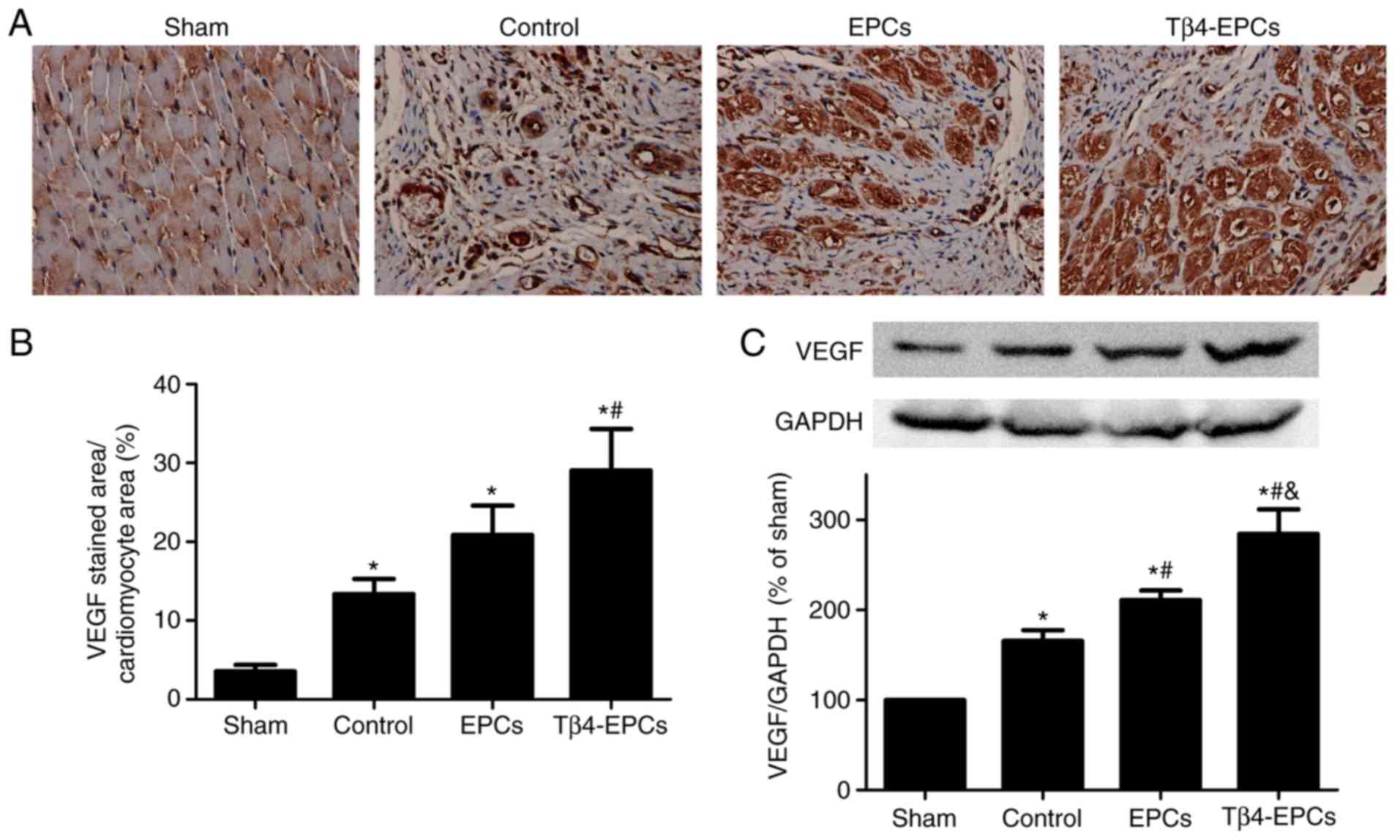|
1
|
Shi Q, Rafii S, Wu MH, Wijelath ES, Yu C,
Ishida A, Fujita Y, Kothari S, Mohle R, Sauvage LR, et al: Evidence
for circulating bone marrow-derived endothelial cells. Blood.
92:362–367. 1998.PubMed/NCBI
|
|
2
|
Kalka C, Masuda H, Takahashi T, Kalka-Moll
WM, Silver M, Kearney M, Li T, Isner JM and Asahara T:
Transplantation of ex vivo expanded endothelial progenitor cells
for therapeutic neovascularization. Proc Natl Acad Sci USA.
97:3422–3427. 2000. View Article : Google Scholar : PubMed/NCBI
|
|
3
|
Hill JM, Zalos G, Halcox JP, Schenke WH,
Waclawiw MA, Quyyumi AA and Finkel T: Circulating endothelial
progenitor cells, vascular function, and cardiovascular risk. N
Engl J Med. 348:593–600. 2003. View Article : Google Scholar : PubMed/NCBI
|
|
4
|
Vasa M, Fichtlscherer S, Aicher A, Adler
K, Urbich C, Martin H, Zeiher AM and Dimmeler S: Number and
migratory activity of circulating endothelial progenitor cells
inversely correlate with risk factors for coronary artery disease.
Circ Res. 89:E1–E7. 2001. View Article : Google Scholar : PubMed/NCBI
|
|
5
|
Asahara T, Kawamoto A and Masuda H:
Concise review: Circulating endothelial progenitor cells for
vascular medicine. Stem Cells. 29:1650–1655. 2011. View Article : Google Scholar : PubMed/NCBI
|
|
6
|
Urbich C, Aicher A, Heeschen C, Dernbach
E, Hofmann WK, Zeiher AM and Dimmeler S: Soluble factors released
by endothelial progenitor cells promote migration of endothelial
cells and cardiac resident progenitor cells. J Mol Cell Cardiol.
39:733–742. 2005. View Article : Google Scholar : PubMed/NCBI
|
|
7
|
Di Santo S, Yang Z, von Ballmoos Wyler M,
Voelzmann J, Diehm N, Baumgartner I and Kalka C: Novel cell-free
strategy for therapeutic angiogenesis: In vitro generated
conditioned medium can replace progenitor cell transplantation.
PLos One. 4:e56432009. View Article : Google Scholar : PubMed/NCBI
|
|
8
|
Kim JY, Song SH, Kim KL, Ko JJ, Im JE, Yie
SW, Ahn YK, Kim DK and Suh W: Human cord blood-derived endothelial
progenitor cells and their conditioned media exhibit therapeutic
equivalence for diabetic wound healing. Cell Transplant.
19:1635–1644. 2010. View Article : Google Scholar : PubMed/NCBI
|
|
9
|
Huff T, Müller CS, Otto AM, Netzker R and
Hannappel E: beta-Thymosins, small acidic peptides with multiple
functions. Int J Biochem Cell Biol. 33:205–220. 2001. View Article : Google Scholar : PubMed/NCBI
|
|
10
|
Zhao Y, Qiu F, Xu S, Yu L and Fu G:
Thymosin beta4 activates integrin-linked kinase and decreases
endothelial progenitor cells apoptosis under serum deprivation. J
Cell Physiol. 226:2798–2806. 2011. View Article : Google Scholar : PubMed/NCBI
|
|
11
|
Qiu FY, Song XX, Zheng H, Zhao YB and Fu
GS: Thymosin beta4 induces endothelial progenitor cell migration
via PI3K/Akt/eNOS signal transduction pathway. J Cardiovasc
Pharmacol. 53:209–214. 2009. View Article : Google Scholar : PubMed/NCBI
|
|
12
|
Li J, Yu L, Zhao Y, Fu G and Zhou B:
Thymosin beta4 reduces senescence of endothelial progenitor cells
via the PI3K/Akt/eNOS signal transduction pathway. Mol Med Rep.
7:598–602. 2013. View Article : Google Scholar : PubMed/NCBI
|
|
13
|
Barcelos LS, Duplaa C, Krankel N, Graiani
G, Invernici G, Katare R, Siragusa M, Meloni M, Campesi I, Monica
M, et al: Human CD133+ progenitor cells promote the healing of
diabetic ischemic ulcers by paracrine stimulation of angiogenesis
and activation of Wnt signaling. Circ Res. 104:1095–1102. 2009.
View Article : Google Scholar : PubMed/NCBI
|
|
14
|
Livak KJ and Schmittgen TD: Analysis of
relative gene expression data using real-time quantitative PCR and
the 2(-Delta Delta C(T)) method. Methods. 25:402–408. 2001.
View Article : Google Scholar : PubMed/NCBI
|
|
15
|
Carmeliet P and Jain RK: Molecular
mechanisms and clinical applications of angiogenesis. Nature.
473:298–307. 2011. View Article : Google Scholar : PubMed/NCBI
|
|
16
|
Kocher AA, Schuster MD, Szabolcs MJ,
Takuma S, Burkhoff D, Wang J, Homma S, Edwards NM and Itescu S:
Neovascularization of ischemic myocardium by human
bone-marrow-derived angioblasts prevents cardiomyocyte apoptosis,
reduces remodeling and improves cardiac function. Nat Med.
7:430–436. 2001. View
Article : Google Scholar : PubMed/NCBI
|
|
17
|
Kalka C, Tehrani H, Laudenberg B, Vale PR,
Isner JM, Asahara T and Symes JF: VEGF gene transfer mobilizes
endothelial progenitor cells in patients with inoperable coronary
disease. Ann Thorac Surg. 70:829–834. 2000. View Article : Google Scholar : PubMed/NCBI
|
|
18
|
Ii M, Nishimura H, Iwakura A, Wecker A,
Eaton E, Asahara T and Losordo DW: Endothelial progenitor cells are
rapidly recruited to myocardium and mediate protective effect of
ischemic preconditioning via ‘imported’ nitric oxide synthase
activity. Circulation. 111:1114–1120. 2005. View Article : Google Scholar : PubMed/NCBI
|
|
19
|
Hur J, Yoon CH, Kim HS, Choi JH, Kang HJ,
Hwang KK, Oh BH, Lee MM and Park YB: Characterization of two types
of endothelial progenitor cells and their different contributions
to neovasculogenesis. Arterioscler Thromb Vasc Biol. 24:288–293.
2004. View Article : Google Scholar : PubMed/NCBI
|
|
20
|
Tagawa S, Nakanishi C, Mori M, Yoshimuta
T, Yoshida S, Shimojima M, Yokawa J, Kawashiri MA, Yamagishi M and
Hayashi K: Determination of early and late endothelial progenitor
cells in peripheral circulation and their clinical association with
coronary artery disease. Int J Vasc Med. 2015:6742132015.PubMed/NCBI
|
|
21
|
Cheng CC, Chang SJ, Chueh YN, Huang TS,
Huang PH, Cheng SM, Tsai TN, Chen JW and Wang HW: Distinct
angiogenesis roles and surface markers of early and late
endothelial progenitor cells revealed by functional group analyses.
BMC Genomics. 14:1822013. View Article : Google Scholar : PubMed/NCBI
|
|
22
|
Yang X, Zhu W, Zhang P, Chen K, Zhao L, Li
J, Wei M and Liu M: Apelin-13 stimulates angiogenesis by promoting
crosstalk between amp-activated protein kinase and akt signaling in
myocardial microvascular endothelial cells. Mol Med Rep.
9:1590–1596. 2014. View Article : Google Scholar : PubMed/NCBI
|
|
23
|
Ohashi K, Enomoto T, Joki Y, Shibata R,
Ogura Y, Kataoka Y, Shimizu Y, Kambara T, Uemura Y and Yuasa D:
Neuron-derived neurotrophic factor functions as a novel modulator
that enhances endothelial cell function and revascularization
processes. J Biol Chem. 289:14132–14144. 2014. View Article : Google Scholar : PubMed/NCBI
|
|
24
|
von Kodolitsch Y, Ito WD, Franzen O, Lund
GK, Koschyk DH and Meinertz T: Coronary artery anomalies. Part I:
Recent insights from molecular embryology. Z Kardiol. 93:929–937.
2004. View Article : Google Scholar : PubMed/NCBI
|
|
25
|
Kupatt C, Horstkotte J, Vlastos GA,
Pfosser A, Lebherz C, Semisch M, Thalgott M, Büttner K, Browarzyk
C, Mages J, et al: Embryonic endothelial progenitor cells
expressing a broad range of proangiogenic and remodeling factors
enhance vascularization and tissue recovery in acute and chronic
ischemia. FASEB J. 19:1576–1578. 2005. View Article : Google Scholar : PubMed/NCBI
|
|
26
|
Reyes-Gordillo K, Shah R, Popratiloff A,
Fu S, Hindle A, Brody F and Rojkind M: Thymosin-beta4 (Tbeta4)
blunts PDGF-dependent phosphorylation and binding of AKT to actin
in hepatic stellate cells. Am J Pathol. 178:2100–2108. 2011.
View Article : Google Scholar : PubMed/NCBI
|
|
27
|
Gnecchi M, He H, Noiseux N, Liang OD,
Zhang L, Morello F, Mu H, Melo LG, Pratt RE, Ingwall JS and Dzau
VJ: Evidence supporting paracrine hypothesis for Akt-modified
mesenchymal stem cell-mediated cardiac protection and functional
improvement. FASEB J. 20:661–669. 2006. View Article : Google Scholar : PubMed/NCBI
|
|
28
|
Jo JO, Kim SR, Bae MK, Kang YJ, Ock MS,
Kleinman HK and Cha HJ: Thymosin beta4 induces the expression of
vascular endothelial growth factor (VEGF) in a hypoxia-inducible
factor (HIF)-1alpha-dependent manner. Biochim Biophys Acta.
1803:1244–1251. 2010. View Article : Google Scholar : PubMed/NCBI
|
|
29
|
Carmeliet P and Tessier-Lavigne M: Common
mechanisms of nerve and blood vessel wiring. Nature. 436:193–200.
2005. View Article : Google Scholar : PubMed/NCBI
|


















